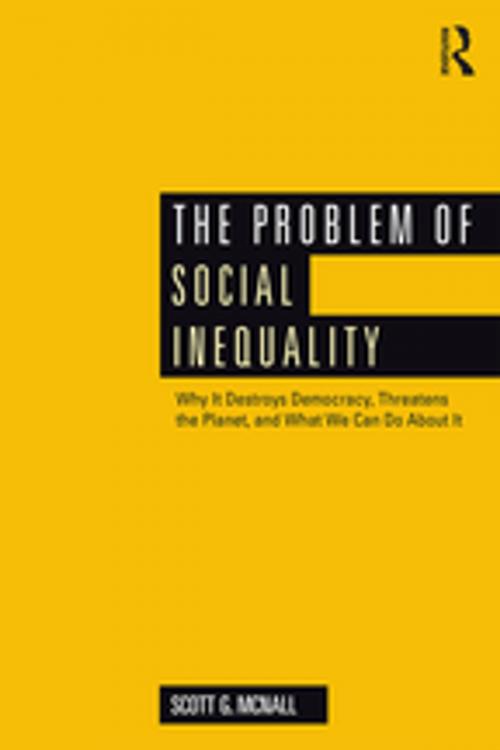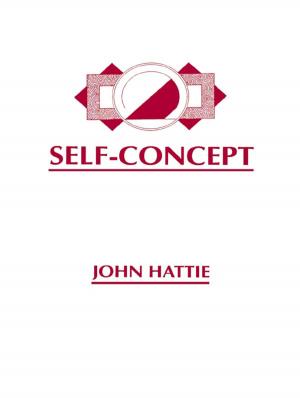The Problem of Social Inequality
Why It Destroys Democracy, Threatens the Planet, and What We Can Do About It
Nonfiction, Social & Cultural Studies, Social Science, Sociology| Author: | Scott G. McNall | ISBN: | 9781317333432 |
| Publisher: | Taylor and Francis | Publication: | December 7, 2015 |
| Imprint: | Routledge | Language: | English |
| Author: | Scott G. McNall |
| ISBN: | 9781317333432 |
| Publisher: | Taylor and Francis |
| Publication: | December 7, 2015 |
| Imprint: | Routledge |
| Language: | English |
Within and among nations, rising levels of social inequality threaten our collective future. Currently, upwards of 80% of people’s life chances are determined by factors over which they have absolutely no control. Social inequality threatens the democratic project because it destroys the trust on which governments depend, and it gives rise to corrupt political and economic institutions. How can we get out of the traps we have created for ourselves? We need to reboot capitalism. Drawing on diverse examples from a range of countries, McNall explains the social, economic, and ecological traps we have set for ourselves and develops a set of rules of resilience that are necessary conditions for the creation and maintenance of democratic societies, and a set of rules essential for creating a sustainable future.
Within and among nations, rising levels of social inequality threaten our collective future. Currently, upwards of 80% of people’s life chances are determined by factors over which they have absolutely no control. Social inequality threatens the democratic project because it destroys the trust on which governments depend, and it gives rise to corrupt political and economic institutions. How can we get out of the traps we have created for ourselves? We need to reboot capitalism. Drawing on diverse examples from a range of countries, McNall explains the social, economic, and ecological traps we have set for ourselves and develops a set of rules of resilience that are necessary conditions for the creation and maintenance of democratic societies, and a set of rules essential for creating a sustainable future.















